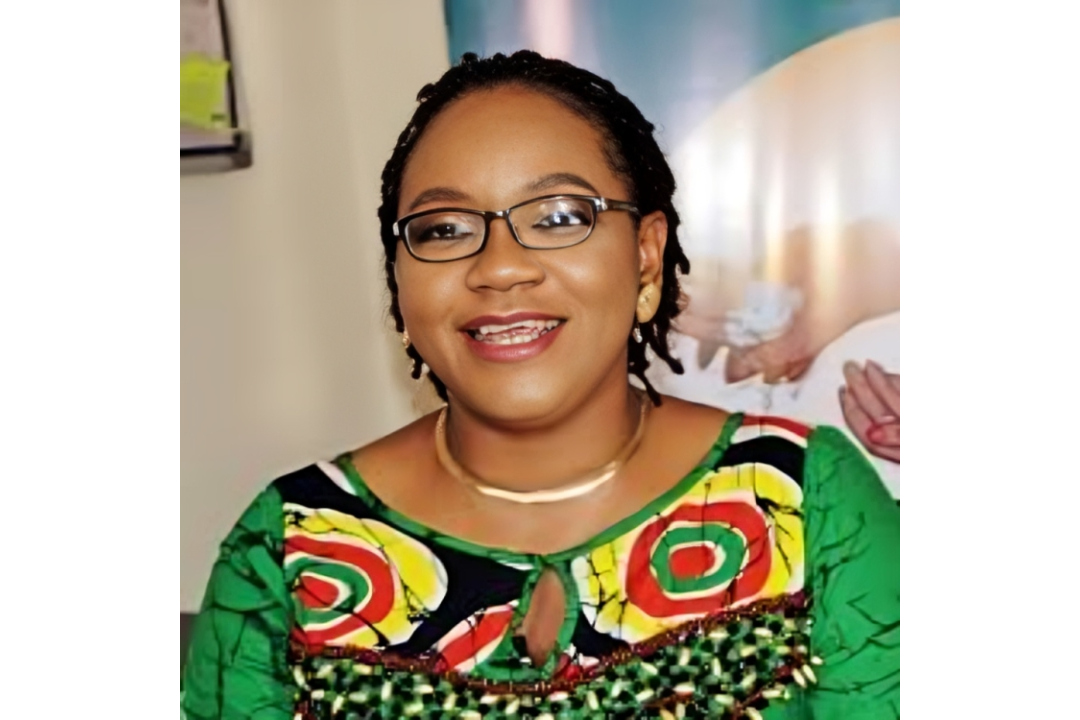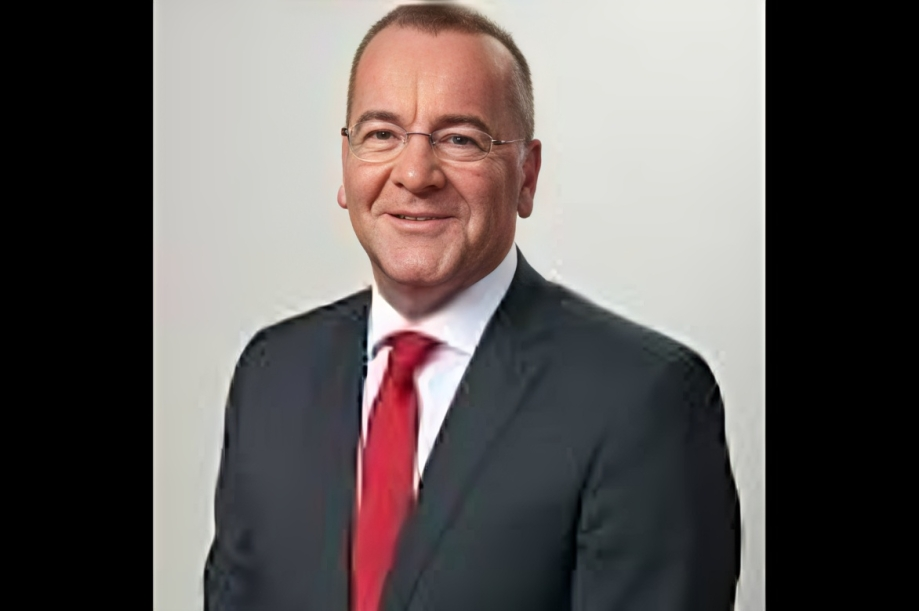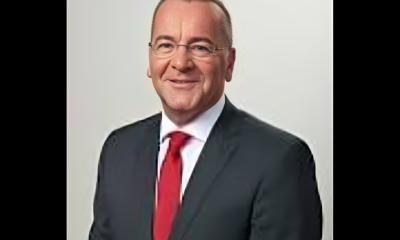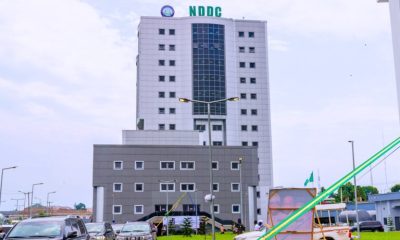NEWS
FG Does not Know Nigeria’s Daily Petrol Consumption- Sylva

By Joseph Amah, Abuja
The Federal Government has conceded that the country did not know and cannot tell the exact volume of Premium Motor Spirit, popularly called petrol, which it consumes on a daily basis.
It stated this just as oil marketers explained that Nigeria’s inability to give a definite figure on the quantity of petrol it consumes daily was due to the continued smuggling of PMS out of the country.
The Minister of State for Petroleum Resources, Timipre Sylva, stated that the Nigerian National Petroleum Company Limited had also agreed that Nigeria could not tell the exact amount of petrol consumed across the country daily.
He disclosed this in an interview with his media team, led by his Senior Adviser, Media and Communications, Horatius Egua, which was made available to our correspondent in Abuja on Friday.
Asked to react to the N3trillion fuel subsidy proposal by NNPC, amid concerns about the country’s PMS consumption figure, Sylva replied, “I would have preferred that this question be directed to the NNPC.“I have made my views known about this issue in the past.NNPC has agreed with me that they are not certain about the exact consumption figure.”He said the truth was that if the country’s petroleum products were smuggled outside the country, nobody could say what volume was involved today, tomorrow or next week, adding that NNPC could not say they know these figures.“It’s more or less fueling a criminal economy. The NNPC imports the products, and nobody knows the exact destination of the products at the end of the day,” Sylva stated.
He added, “The imported products come to Nigeria, and from there filters out of our borders to neighbouring countries.“So, as a country, we cannot tell the exact volume of petroleum products that we consume on a daily basis. All we have been doing is to assume the level of consumption over a period and work with that.”He, however, expressed belief that the NNPC probably had a better answer to this, stressing that “personally, I dont.“I have said this publicly before that I don’t know the figure. When I assumed office, initially I was told that our daily consumption was 66 million litres.“Then, when fuel prices increased from N145 to N162, the consumption figure temporarily fell to about 40 something million litres per day, because the arbitrage opportunity reduced,” Sylva stated.
He added, “Then the value of the naira dropped again, and the number went up again to over 60 million litres. I am told the figure sometimes rise to as high as 90 or over 100 million litres. I don’t know how that happens.“At this rate, I have said if anyone is looking at a criminal enterprise, look no further than the fuel subsidy.”This, the minister said, was why he had continued to advocate the removal of fuel subsidy from the country’s PMS pricing template and deregulate.
He said the President, Major General Muhammadu Buhari (retd.), had done everything to resolve the issue, including the closure of the country’s borders with neighbouring countries, yet the criminality was not stopped.“The truth is that what the President could do was to close the ‘formal’ borders. What about the illegal routes?,” Sylva asked.
On what could be done, the minister said if the subsidy component was taken out through deregulation, smuggling of PMS to neighbouring nations would cease.“Of course, we need the market from there. But now we are punishing ourselves because every litre we import at our expense will always find its way outside the country,” he stated.
He added, “Now, the government is trying to subsidise our citizens so that our people will at least get the benefit of the subsidy on petroleum products.“But, now because of how our borders are, it is very difficult. Now, we are inadvertently subsidising the whole of Africa. This is the thing we cannot handle.”Also speaking on the matter, the Executive Secretary of the Major Oil Marketers of Nigeria, Clement Isong, told our correspondent that the cheap fuel in the country had remained an incentive to smugglers.
He said, “The higher the price (of petrol) is outside the country and you see prices where they are in the country, the natural response is that normal people such as farmers, okada drivers, transporters, etc, will leave their jobs to go and sell petrol.“This is because of the mark-up. This is why, particularly in Abuja, you see many people carrying jerrycans of fuel selling them on major roads. This also plays along our borders.“For as long as the international price continues to rise and we keep our own prices where they are, what will happen is that those countries will suck the products out of Nigeria and you simply will not find the product in Nigeria.”Isong added, “If you go to those countries, the marketers there will tell you that they are unable to sell because of the product coming from Nigeria is killing their market. This happens in all the countries around Nigeria.”He stated that the normal supply chain volumes would continue to go down because the products were leaving Nigeria, describing those smuggling out PMS as ordinary everyday citizens.“This is because they simply make more money buying from here at N162-N165/litre and going across the border to sell at N500/litre. It is more money for them and it is simply the law of economics, called arbitrage, which is a market distortion,” Isong stated.
He added, “And it is what the subsidy on petrol does on Nigeria, a market distortion. Something is worth N500 and you’re selling at N200. Now where you’re supposed to find it at N200 you will not see it because it has moved to where the actual value of N500 is.“This can also contribute to the scarcity we see in parts of Nigeria. That is why NNPC if it is meant to normally supply 60 million litres per day, for it to keep queues out of filling stations, it will have to increase its supply to 90 to 100 million litres. That’s the problem.”The MOMAN official said Nigeria must wean itself of fuel subsidy, “because we are killing both our present and future.“We simply cannot afford it. We are borrowing money for it.”
Health
NCDC Urges Stronger Hand Hygiene Culture In Healthcare

As part of activities to mark the 2025 World Hand Hygiene Day, the Nigeria Centre for Disease Control and Prevention (NCDC) has emphasised that hand hygiene is not just a clinical procedure.
It is a moral obligation and a public health imperative that must be embedded in the culture of healthcare delivery nationwide.
Dr Tochi Okwor, Head of Disease Prevention and Control at the NCDC, said this on Monday during a commemorative event held at Maitama District Hospital in Abuja.
Okwor reiterated that hand hygiene remained one of the most effective measures for preventing healthcare-associated infections (HAIs), limiting the spread of antimicrobial resistance (AMR), and ultimately saving lives.
“The theme for 2025 campaign, ‘It Might Be Gloves. It’s Always Hand Hygiene,’ highlights the misconception that wearing gloves alone is enough to prevent infection.
“Gloves can become sources of contamination if not used properly or if hand hygiene is neglected before and after use.
“Glove stewardship, like antimicrobial stewardship, must be grounded in evidence, risk assessment, and responsible use,” she added.
Highlighting Nigeria’s progress in infection prevention and control (IPC), Okwor noted significant achievements, including the implementation of the Turn Nigeria Orange (TNO) movement, which assessed and strengthened IPC systems across the country.
She explained that the agency had established the Orange Network, a cohort of healthcare facilities serving as centres of excellence for IPC, antimicrobial stewardship (AMS), WASH, and diagnostics.
“Other key milestones include the launch of a national IPC policy and five-year strategic plan, the establishment of a dedicated IPC budget line at the federal level, and the training of more thsn 393 certified IPC professionals.
“We’ve also developed a draft IPC legal framework, formed operational technical working groups at national and state levels, and rolled out HAI surveillance systems for real-time infection detection and response,” she said.
While policies and protocols were vital, she emphasised that true progress lied in building a culture where hand hygiene was a lived practice embraced by healthcare workers, administrators, patients, and communities.
“We must move beyond compliance to foster a culture supported by leadership role-modelling, data-driven feedback, and patient empowerment,” Okwor said.
She noted that Nigeria’s IPC strategy aligned with the WHO’s Global IPC Strategy (2024–2030), supporting national health goals such as Universal Health Coverage and Primary Health Care revitalisation.
“Let every clean hand be a declaration that safety matters, that patients deserve better, and that no one should be harmed in the process of care,” she added.
Dr Rita Idemudia, Medical Director of Maitama District Hospital, stressed the significance of consistent hygiene practices in both healthcare and community settings.
“About 60 per cent of diseases can be prevented through proper hand hygiene,” she said, adding that regular handwashing was one of the most cost-effective ways to reduce infections and promote public health.
The event lauded institutions like Maitama District Hospital for translating national IPC policies into practice, setting benchmarks in implementation and demonstrating a commitment to patient safety.
The World Health Organisation (WHO) observes May 5 each year as World Hand Hygiene Day to raise global awareness about the importance of clean hands in preventing infections and safeguarding healthcare systems.
The event ended with a call to action urging all healthcare stakeholders to recommit to hand hygiene as a life-saving practice, one that must never be overlooked, regardless of gloves or other protective equipment in use.
NEWS
Methodist Synod Urges FG To Enhance Police Capacity to Combat Ritual Killings

From Ene Asuquo,Calabar
Methodist Church of Nigeria, Calabar, Synod has charged President Bola Tinubu to take immediate action to enhance the capacity of police personnel to effectively address the rising wave of ritual killings and insecurity challenge troubling the the country.
They called on government at all levels to galvanize state apparatus to stem the tide of unabated shedding of innocent blood through wanton killings, vandalization and plundering of national assets.
The Synod noted with dismay the return of paganism, and alarming rate of sacrifices of innocent persons in different parts of the nation for money making purposes by evil individuals in the country.
Chairman, 3rd Annual Synod, Methodist Church of Nigeria, Diocese of Atamunu Calabar, Rt. Rev. Otuekong Ukut Ph.D, gave the charge while commenting on the state of the nation in Calabar yesterday.
He decried that innocent persons had been murdered and sacrifice for money ritual purposes to wicked gods for with the perpetrators of this dastardly act deceiving themselves that they will make wealth wealth and riches from organ harvesting and trafficking.
Clauses from the 10-point communiqué issued by the Synod signed by the chairman Rt. Rev Bishop Otuekong Ukut Ph.D, Synod Secretary, Very Rev. Anthony Essien and Lay president Sir Dr. Gabriel Inyang, called for quick strengthening of the capacity of law enforcement agents to enhance investigation, prosecution of ritual killers.
The Synod urged authority of the Nigeria police to improve the knowledge of its personnel, concentrate more on intelligence gathering to identify and disrupt ritual killing networks.
The clerics urged president Tinubu to address underlying issues that includes implementation of policies that will reduce poverty, inequality as well as establish social safety nets to support vulnerable people.
The Synod, admonished churches and Christians to wake up in prayer, be vigilant, so more evangelical to win souls to Christ and bring repentance to these perpetrators.
Other issues which the Synod wants federal government to addressed include, Inter-religious relationship, ecclesiastic matters, restructuring of the nation, state of the economy, reform of Judiciary, state of Cross River, rehabilitation of Calabar Itu road among others.
| ReplyReply allForwardAdd reaction |
Foreign News
German Minister Keeps Post As SPD Reveals Ministers

German Defence Minister, Boris Pistorius is to retain his post in the new Cabinet, his Social Democratic Party (SPD) said Monday, as the party unveiled its picks for ministerial positions.
The SPD is set to enter the new German Government as the junior partner in coalition with Friedrich Merz’s conservative bloc, made up of the Christian Democrats (CDU) and the Bavaria-only Christian Social Union (CSU).
The partners were to sign off on the 144-page coalition agreement at 12 p.
m. (1000 GMT) on Monday, before Merz can be elected Germany’s new chancellor by parliament on Tuesday.The conservatives emerged as the winner from February’s parliamentary elections, followed by the anti-immigrant Alternative for Germany (AfD), which was designated as a “confirmed right-wing extremist’’ organisation by domestic intelligence last week.
The SPD, traditionally one of the two main political forces in Germany, fell to third place after a difficult period in office under the leadership of outgoing chancellor Olaf Scholz.
With centrist parties ruling out cooperation with the AfD, a policy known as the “firewall’’, a coalition between the CDU/CSU alliance and the SPD became inevitable in spite of the clashes.
They clashed on the issues such as migration and the economy during the election campaign.
SPD co-leader Lars Klingbeil was to become vice chancellor and finance minister after striking up a strong partnership with Merz during negotiations to form a coalition.
Four of the incoming SPD ministers are women: Bärbel Bas as labour minister, Verena Hubertz for construction, Reem Alabali-Radovan as development minister and Stefanie Hubig taking on the justice portfolio.
Carsten Schneider was to be the SPD’s new environment minister, but there was no place in the Cabinet for Klingbeil’s colleague as co-leader, Saskia Esken.
Pistorius, widely seen as the SPD’s most popular politician, was the only member of the outgoing Cabinet to keep his position.
“The SPD is putting together a team that is ready to boldly shape our country,’’ the party’s leadership said in a joint statement on Monday.
“Experienced personalities from federal and state politics meet new faces who stand for the generational change in the SPD.’’
The conservatives outlined their choices last week, with Katherina Reiche as economy minister and the CSU’s Alexander Dobrindt taking the interior portfolio.
Once Merz is elected and his Cabinet sworn in, the new administration can get to work, exactly six months after Scholz’s centre-left coalition imploded amid in-fighting, triggering early elections.
It faced a long list of pressing challenges, from Germany’s ailing economy and crumbling infrastructure of the threat to European security from Russia and an ever-more abrasive U.S. president.
Scholz, meanwhile, was to receive an official send-off later on Monday, with a special military ceremony known as a tattoo to be held in his honour in Berlin





























